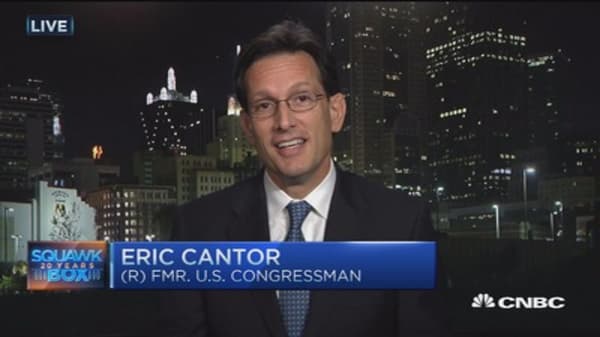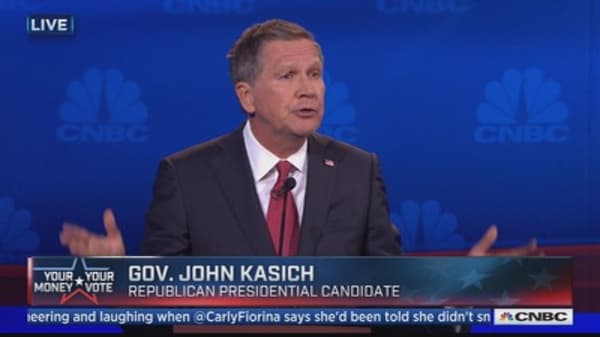The next president should slash taxes, cut federal spending, shrink the government and simplify the tax code.
As a crowded stage of Republican presidential candidates squared off for their third debate in Boulder, Colorado, on Wednesday, there was little disagreement among them on the need to implement those policies. But there was a lot less clarity about how each candidate would accomplish those goals.
The debate over federal taxing and spending comes as Congress takes up a critical proposal to break a longstanding fiscal deadlock over the last several years that has posed repeated threats of government shutdowns and, more recently, the prospect of a default by the U.S. government. Capped by a limit on its borrowing authority, the Treasury expects to run out of cash as early as Tuesday unless the so-called debt ceiling is lifted.
Read MoreGOP debate: Who won ... and who lost
To head off the potential financial chaos unleashed by a default, the House approved a two-year spending deal that is expected to be taken up by the Senate this week. But the deal was roundly attacked by several of the GOP presidential candidates at Wednesday night's debate, including Kentucky Sen. Rand Paul.
The agreement "will explode the deficit; it will allow President Obama to borrow unlimited amounts of money," Paul said. "I will begin tomorrow to filibuster it. And I ask everyone in America to call Congress tomorrow and say enough is enough; no more debt."
In fact, while the deal lifts the debt ceiling until 2017, Congress still has to approve any new spending. And while the plan calls for roughly $80 billion in new spending over two years, Congress must still work out specific spending bills before the latest round of budget authority runs out Dec. 11.
But while the words "tax" and "spend" were spoken more than 100 times in Wednesday's debate, there were few detailed proposals offered on how to prioritize federal spending or reform the tax code. The alternatives proposed were typically vague or simply didn't add up.








